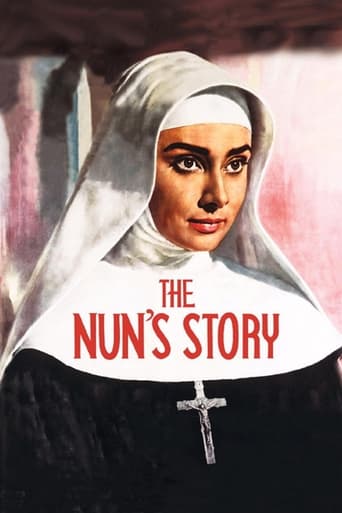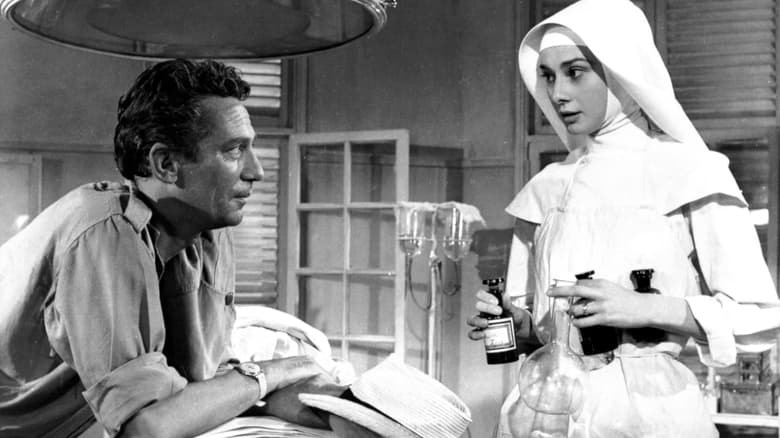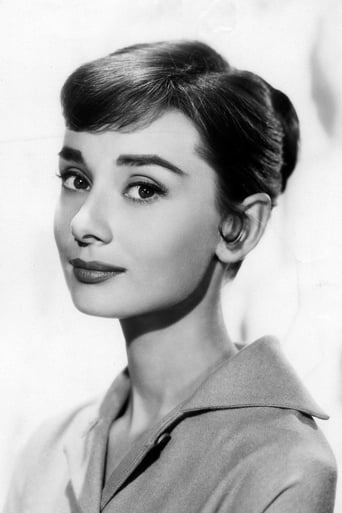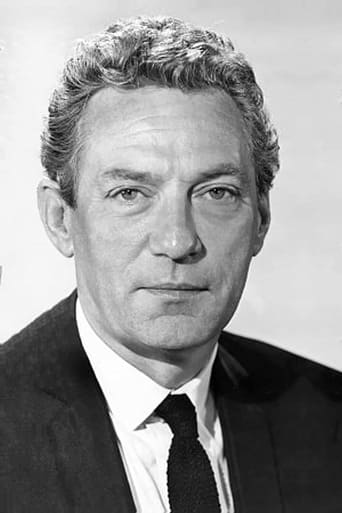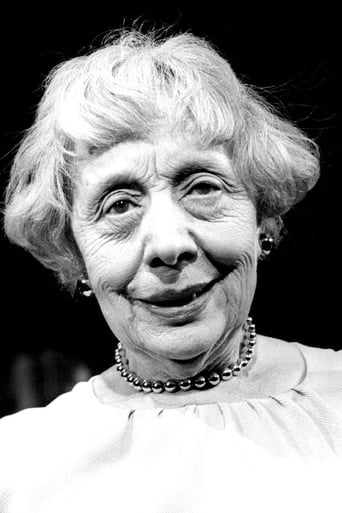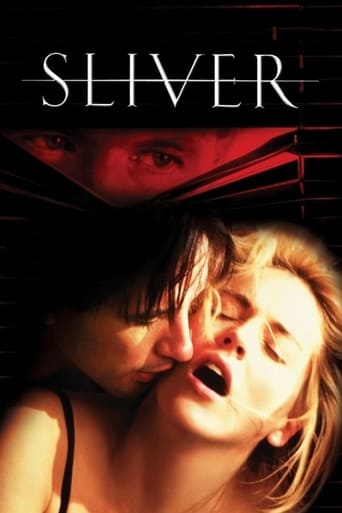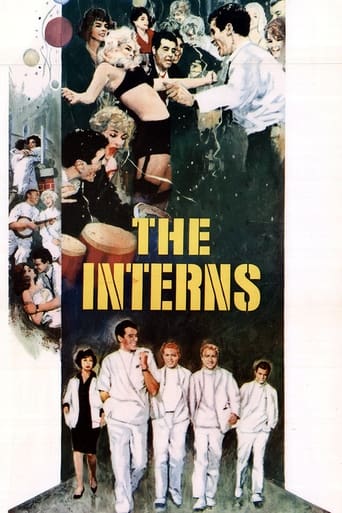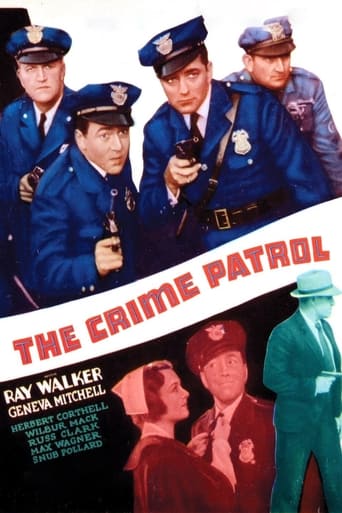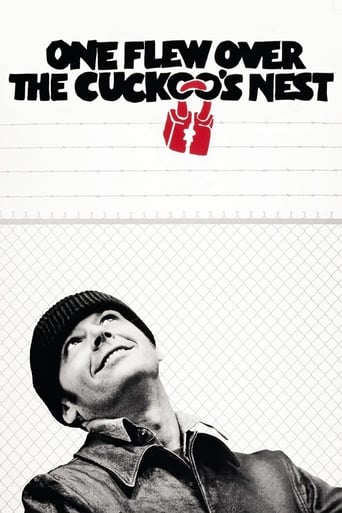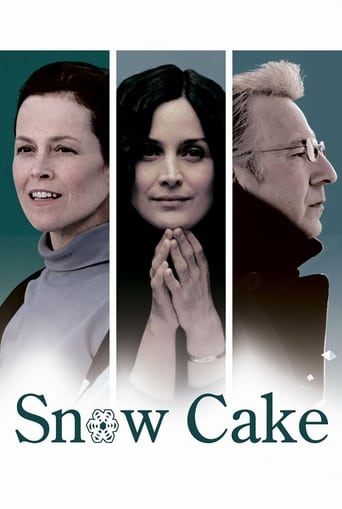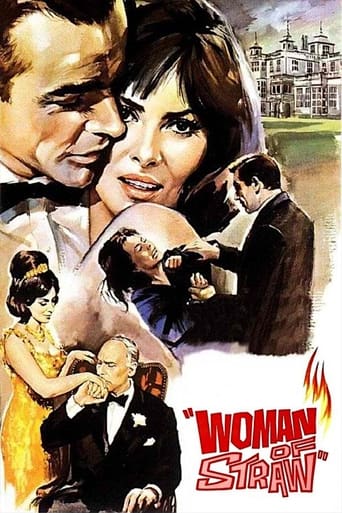The Nun's Story (1959)
After leaving a wealthy Belgian family to become a nun, Sister Luke struggles with her devotion to her vows during crisis, disappointment, and World War II.
Watch Trailer
Cast


Similar titles
Reviews
This film shows the life of a Belgian nun, from the moment she enter to the convent and through successive crises of vocation and a mission in Belgian Congo. Directed by Fred Zinnemann, the film has a screenplay by Robert Anderson, based on a fictional novel by Kathryn Hulme. The cast is led by Audrey Hepburn, in the lead role.Despite having been nominated for eight Oscars (Best Picture, Best Actress, Best Director, Best Adapted Screenplay, Best Sound, Best Cinematography Color, Best Soundtrack and Best Editing), this film has been ignored by people over the last few decades, which makes it probably one of the most unknown movies in Hepburn's career. Of course, many people think, reading the title, this film is pure Catholic propaganda, and maybe that's why its not widely spoken. But its far from propaganda, despite showing, with accuracy, the modus vivendi of the nuns in the beginning of the last century. Keep track of time is very important to understand the film, which passes through in the end of World War II, and also helps to understand one thing that the film doesn't say but any person will notice quickly: the way of life that the nuns of this film lead fell into disuse for decades ago, due to the massive modernization that the Catholic Church suffered.The script is excellent, though not (as some people think) a true story. Much of the film is fiction inspired by real facts, but fiction. Its a history of sacrifice, overcoming, love to a vocation and a profession: medicine, that the young nun exercises as religious. But its also a film about doubts, inner conflicts and people trying to be better by facing their failures and humanity. Audrey Hepburn shone as Gabrielle/Sister Luke, her beautiful face gave her an almost angelic appearance and a truly powerful presence on screen. The way she counter-acts with Peter Finch, who played a doctor in Congo, with very specific ideas and almost devoid of faith, its delicious. The scenarios are very good, recreating well the religious ambiance and the almost savage Africa, that Europeans pioneered in those years.The end of the film is one of the most amazing I've seen, mainly for two reasons: First, its absolutely silent, having no music; second, after seeing this nun suffer so much by her dreams, its impossible for her not to win the public's affection, so the end becomes difficult to accept for the public.Decidedly, this film is worthy and deserves to be seen more often by the current public.
After years of reading about this movie, I finally saw The Nun's Story on Netflix disc with my mom who claimed to have seen it before but as the picture went on, she remembered none of it. So she ended up being as fascinated by what was going on in it as I was and told me some pertinent facts about the Catholic faith during some of the movie. Fred Zinnemann made a beautiful but also at times, intense, drama about a young woman's choice in joining the convent and the sacrifices she had to take in doing so. Audrey Hepburn conveys just the right amount of restraint and emotional feeling in her role of becoming Sister Luke having to abandon her earlier identity of Gabrielle. And Franz Waxman does quite a swelling score during most of the picture though the ending scene is all the greater with no score at all. So on that note, The Nun's Story is highly recommended.
The Nun's Story (1959)I knew I would enjoy at least Audrey Hepburn, and she's fabulous. But the movie came on as a Christmas Day feature and I worried that it would have too many religious overtones. Then as the credits rolled I saw it was directed by Fred Zinnemann. Zinnemann? I wondered what would draw him to this kind of story. My expectations tripled.I was not disappointed. This is a measured but never slow movie. It's totally beautiful, it handles the sanctity of the convent with respect, never tipping into sappy adoration. Hepburn is what you want from her, lively and independent, and this is a natural conflict in a world of discipline and loss of independence. And it's also an evolving, changing story with a couple of major twists as it goes. By the end you see very much why Zinnemann wanted to do this and I can't tell you that. See for yourself.The conflict between self and community, between having your own opinion about something and being forced to follow a larger set of rules that might not always be best, is the core of the film. When do you rebel? When do you submit? And if you have agreed beforehand to devote your life to submission, do circumstances allow an exception? A total change of heart?If you think this sounds boring it is not. You might give Hepburn the biggest credit here--she's a natural and you are nothing but sympathetic--but the directing the cinematography are huge, as well. Behind the camera is Franz Planar, who did such trifles as "Holiday" and "Letter from an Unknown Woman" as well as two Audrey Hepburn movies "Roman Holiday" and "Breakfast at Tiffany's." If you have seen any of these (or all) you'll know how really perfectly they are filmed, with the camera in service to the story.The story, by the say, in "The Nun's Story" is very much the point, even beyond the moral. When does a young woman leave a loving and comfortable home and join a convent, face a loss of self and freedom, and yet still feel useful to the world? Hepburn's character (who changes names, in part of the effort to leave the past behind), wants to go to Africa to serve the needy. How this is thwarted--or not--you'll see, but you really root for her. You see her brush against her principles in every way. And you see a larger principle arise--do the right thing. And she does. It's beautiful. It ought to make you cry. It will easily engage and move you.
Directed by Fred Zinnemann, "The Nun's Story" is a beautifully realized film about a young woman who makes the difficult commitment to become a nun in 1930 Belgium.Hepburn is Gabrielle, whose father (Dean Jagger) is a well-known surgeon. Gabrielle herself is brilliant in the field of science, and her father has a difficult time with her decision to join a nun's order. But Gabrielle wants to serve God, and she wants to do missionary work in the Congo.It's a tough life. One is not allowed to reminisce, as you must wipe your family from your memory; you must give up personal items; there are great silences imposed; you can never ask for anything but must anticipate your fellow nun's needs. And one must never fall victim to the sin of pride.Gabrielle eventually gets to go to the Congo, where she runs into Dr. Fortunati (Peter Finch) who falls for her. When an important case needs escort back to Belgium, Gabby must leave. Then the war intervenes. Gabrielle, meanwhile, wants to go back to the Congo.It's a formidable cast: Dame Edith Evans, Dame Peggy Ashcroft, Patricia Collinge, Colleen Dewhurst, Lionel Jeffries, and Barbara O'Neil. Hepburn paints a beautiful portrait of Gabrielle, a lovely, brilliant, willful and determined woman. Finch is rugged and hunky - it's no wonder Vivien Leigh tried to run away with him. Dewhurst has a very showy role as "Archangel" in a mental institution. The nuns are all excellent.A truly stunning film about a smart, resourceful woman attempting to do God's will as she sees it, but it means stripping away everything that makes her the person that she is.The last ten minutes of this film will stay with you a long time; it is very powerful. A compelling story.

